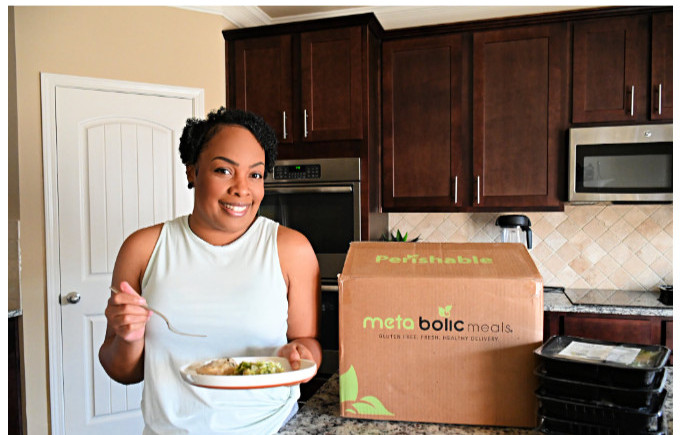Best Ways To Improve Physical Health – Transition to a Better Life
Did you know that a balanced diet is your golden ticket to vibrant health? Infact, it is one of the best ways to improve physical health. Now, when I mention macronutrients and micronutrients, I’m talking about the building blocks of what you eat. 
Best Ways to Improve Physical Health
Macronutrients include proteins, fats, and carbohydrates, while micronutrients are your vitamins and minerals. Don’t worry too much about mastering the science here. Just remember that the best ways to improve physical health has a lot to do with your diet.
Macro and micronutrients, vitamins and minerals all crucial for keeping your body running smoothly.
Think of adding a rainbow of fruits and vegetables to your plate as painting your palette of nutrients. Having a wide array of vitamins and minerals makes meals visually appealing!
And let’s not forget hydration. It’s not just about quenching thirst; it’s about supporting every single bodily function.
Choosing whole grains and the right kind here is also part of the mix. These complex carbs are your steadfast friends for sustained energy levels.
Adjusting your diet to fit your activity level and lifestyle is imperative. If you’re someone who loves hitting the gym or going for a run, your body will need a different fuel mix than someone with a more sedentary day-to-day.
In my opinion, it’s all about listening to your body and responding with nourishment that meets your energy and recovery needs.
So, you’ve got your plate full of color and nutrients, but guess what? That’s just the beginning. Next up, you’re going to learn about the bedrock of physical wellness: regular exercise. And you’ll find out how it’s not just about grinding at the gym; there are plenty of ways to move your body and reap the benefits.
Best Regular Exercise
The Bedrock of Physical Wellness
I’ll let you in on a secret: Regular exercise is your best friend when striving for top-notch physical well-being. This isn’t just about losing a few pounds; it’s also about building strength, flexibility, and giving your cardiovascular health a boost. Make sure to wear a good walking shoe.
Let’s start with finding the right mix. A balance between cardio, strength, and flexibility training is essential. Cardio gets your heart pumping, strength training builds muscle, and flexibility exercises keep your body limber.
You don’t have to be a gym rat to reap the benefits! Even simple activities like brisk walking, swimming, or even gardening will contribute to your physical activity quota.
I’m here to help you set tangible exercise goals. Whether you’re aiming to run a 5K or just walk more every day, tracking your progress creates a sense of accomplishment. And remember, you can always adjust your approach down the road as you gain endurance and confidence.
Now, injuries may slow down even the best-laid plans. It’s important to understand that your body needs time to recover. That’s why incorporating rest days into your fitness routine is not just recommended; it’s a must.
Motivation is sometimes tricky, right? Choose something that resonates with you, align it with your interests, and lean on a community for support. Whether it’s a local running club or an online fitness community, a sense of camaraderie works wonders.
Restful Sleep
Recharging Body and Mind
You might not think of sleep as a tool for improving physical health, but I’m here to tell you, it’s one of the most powerful ones you have. In fact, skimping on sleep unravels a lot of the good work you’re doing with your diet and exercise routine.
Here’s the scoop: the relationship between sleep and physical health is bidirectional. Good health promotes better sleep, and in turn, restful sleep contributes to better overall health. It’s a classic win-win situation.
For starters, let’s talk about creating a sleep haven. It’s about more than just a comfy mattress. Think cool, dark, and quiet. Blackout curtains, a white noise machine, and keeping electronics out of the bedroom makes a world of difference.
Now, if you’re tossing and turning at night, it’s time to strategize. There are ways to find your zen before bed.
For example:
- Do some light reading
- Have a meditation session
- Steer clear of caffeine late in the day
- Establish a winding-down ritual
- Indulge in a warm bath
- Gentle yoga stretches
Sleep isn’t just for resting your body; it plays a huge role in weight management, mood regulation, and sharpening your mind. A solid night’s sleep is like pressing the reset button on your brain, washing away the mental debris from the day.
So, commit to a sleep schedule and stick to it, even on weekends. Consistency is key for your body’s internal clock. And yes, those occasional late nights will happen, but don’t make them a habit. Remember, your body thrives on routine.
After Losing My Mum
One of my most poignant health wake-up calls was after I lost my mum in 2001 just after we lost the Twins Towers in New York during the 9-11 incident. It was one of the darkest times of my life.
I tried to work off the grief by working multiple jobs. Black coffee was my go to, and drinking a pot or two a day was normal. However, working three jobs without much sleep took its toll. Eventually, things began to fall apart.
After a long talk with my primary care physician, (Dr. Susan Thomas), I had no choice but to turn my life around in terms of my health. I was doing everything wrong.
An Engaging in an Unhealthy Lifestyle
Eating huge amounts of ultra-processed foods, (lots of pizzas, ice cream, pastries, fries, milkshakes, etc.) , fries, drinking vast amounts of caffeine and getting very little sleep. I was at the tipping point.
Long story short: when you’ve hit rock-bottom, you got to make some actionable choices if you want to survive. Had I not had my doctor to convince and coach me back to health, I would still be heading down a dead-end street. Unhealthy
From Unhealthy to Healthy
My vital signs and lab results were clearly off the charts. On top of all this, I was grieving for my mum. It was not a walk in the park to take a leap from a troubling, unhealthy lifestyle to a healthy lifestyle. I was weened off of coffee.
After two weeks of hospilization and lots of rest, I was able to get a new perspective on my life. I committed to my doctor’s advice and was able to change my life around. My sister played a key role in my recovery. She moved in, cooked, cleaned and waited on me hand and foot.
The Moral of the Story
No one is immune from an unhealthy lifestyle patterns. Especially if you have to provide for your family or you are a single person. It is quintessential to stay connected to your primary care provider. When vitals signs go haywire, it is critical to get them back on track as soon as possible. Trust me, not everyone gets a second chance.
Mental Well-Being
An Integral Component of Physical Health
I’ll let you in on a secret: mental well-being is just as crucial as hitting the gym or nailing your diet when it comes to your physical health. You see, our minds and bodies aren’t two separate entities. They’re more like different parts of the same machine, working together to keep us running smoothly.
Stress management techniques seriously change the game for your overall wellness. Activities like yoga, meditation, and even simple deep-breathing exercises helps fend off the negative effects of stress. And why does this matter? Because stress leads to high blood pressure, heart disease, and a host of other physical health issues.
But that’s not all. Incorporating mindfulness and relaxation into your daily life isn’t just a trend; it’s a research-backed approach to actually improving your physical health. By staying present and reducing anxiety, you’re setting the groundwork for a happier, healthier you.
And if you’re facing challenges that feel too big to handle alone, don’t be shy about seeking support. Therapy or counseling isn’t just for crises; it’s a proactive way to maintain your mental wellness. Matters not whether it’s traditional talk therapy, group counseling, or even online platforms.
Last but not least, don’t underestimate the power of social connections. Make an effort to balance your busy schedule with meaningful interactions. Whether it’s coffee with a friend or a family dinner, these moments can provide emotional support and a much-needed break from the hustle and bustle.
Preventative Healthcare
Staying a Step Ahead
I’m here to help you understand the final, and perhaps most crucial, pillar of maintaining your physical health: preventative healthcare. Think of it like the routine maintenance of a car; regular check-ups detect issues before they turn into major problems.
By scheduling consistent health screenings, you’re going to find out about your health status and catch potential health issues early when they’re often easier to treat. These screenings include blood pressure checks, cholesterol levels, diabetes screenings, and cancer screenings, among others.
Immunizations aren’t just for kids. They’re an essential part of adult health care as well. Vaccines protect against diseases like the flu, pneumonia, and shingles, and they can be lifesavers, literally.
It’s also important to recognize and manage your personal risk factors for diseases. Tailoring your lifestyle to mitigate these risks is an empowered way to take charge of your health.
This includes variables such as:
- Family history
- Lifestyle choices
- Environmental exposures
Supplements and Vitamins
While it may feel overwhelming at times, remember the supplements and vitamins mantra: less is often more. Supplements generally fill dietary gaps, but they’re not a substitute for a balanced diet. Always choose something that’s been recommended by a healthcare provider.
Connect With Your Healthcare Team
In the grand scheme of things, embracing these preventative healthcare steps is about more than dodging illness; it’s about quality of life. Your journey to better health doesn’t need to be a solo venture – healthcare professionals are your allies. Building a relationship with a trusted doctor can lead to personalized advice and better outcomes.
Incorporate Preventative Healthcare Practices
To wrap it up, incorporating preventative healthcare practices into your routine sets a solid foundation for improved physical health.
Here are a few examples:
- Regular check-ups
- Vaccinations risk management
- Sensible use of supplements
These practices create a formidable defense against health issues. And if you haven’t gotten started, now is the time. After all, an ounce of prevention is worth a pound of cure. Keep this as your mantra and enjoy the lasting benefits of good health.
Founder and CEO
(w) mybluegenes.com
(e)rachele@mybluegenes.com







One Comment